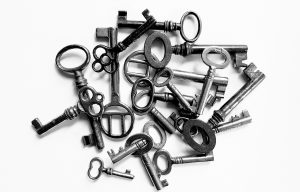The key to changing habits.

One of the prime directives of our unconscious mind is to maintain our habits. An article in the New Scientist in 2018 suggests that ‘As much as 40 per cent of our daily behaviour is habitual’. No wonder changing habits is so difficult.
I highly recommend the excellent book ‘The Power of Habit’ by Charles Durigg. One of his fascinating stories tells of Eugene Pauly, a man who suffered severe brain damage, but was still able to function incredibly well, largely due to the fact that the part of his brain that dealt with habits and routine, was relatively unharmed.
When we talk about habits we are generally thinking of ‘bad’ habits such as smoking, drinking or biting our nails. Or we may be thinking about the ‘good’ habits that include things like regular exercise or eating healthily.
In fact the vast proportion of our habits are almost invisible to us, and their purpose is entirely functional. Flushing the toilet, closing the fridge door, turning right at the end of the streeet – these are typical things that we do and repeat without thought hundreds or thousands of times without ever thinking about how we built those habits. This is the unconscious mind, saving your conscious mind from having to think about any of the minutiae of life.
Where would we be if we had to make all these choices and decisions over again consciously?
How does the unconscious mind create a habit?
There is a great deal of research about the creation and maintainance of habits. Most would agree that repetition is a key, and there are various views on how frequently an action must be repeated to form a habit. Some say 14 days, some 30, but there are certainly other things that contribute to these new learnings.
In the excellent book, mentioned above, the Author defines an ideal structure to a habit.

Firstly there is a ‘cue’. A trigger that tells the brain to enact the habitual behaviour. Maybe it is lighting up a cigarette when you get into the car at the end of a work day, or seeing your running clothes on the end of the bed when you wake up in the morning.
Then there is the routine – the behaviour that forms the habit – smoking the cigarette, doing the run.
Finally there is the reward – the nicotine hit, or the knowledge that you did the run and are getting fitter.
How can I change a habit or form a new one?
This structure is highly important, and disrupting one of the parts of this system can change the habit. For example I sometimes work with people on biting their nails. When doing so, I often suggest they are only allowed to continue if they do it with their hands upside down!
When helping clients maintain an effective habit such as jogging in the morning, I will want to find a cue. I will help them find key habits in the day that they already perform, such as feeding the cat. Then I will associate their new desired habit with the cue they already have ingrained. I might have them put their running shoes next to the area where they place the dish. That way they will see them and naturally remember to put them on. There will usually be an associated Neurolinguistic Programming (NLP) process to help embed this.
Once you have mastered the concept of forming new habits it can have an amazing impact on your overall life. This is particularly true with ‘keystone’ habits, as Durigg calls them. These are small habits that can have massive impact. Regular exercise is one such habit. Apparently so is keeping a ‘food diary’. I would maybe suggest early rising as another.
Why not try making a list of all the habits that you would love to form? Choose one or two that you think might balance ease of integration with impact on your life and see if you can set up a ‘cue, routine, reward’ structure to help you maintain it.
Please note that some of the links on this website are ‘paid affiliate links’ which means that clicking on them may generate income for me. This does not affect the cost of any product you purchase.
0 Comments on “The key to changing habits.”